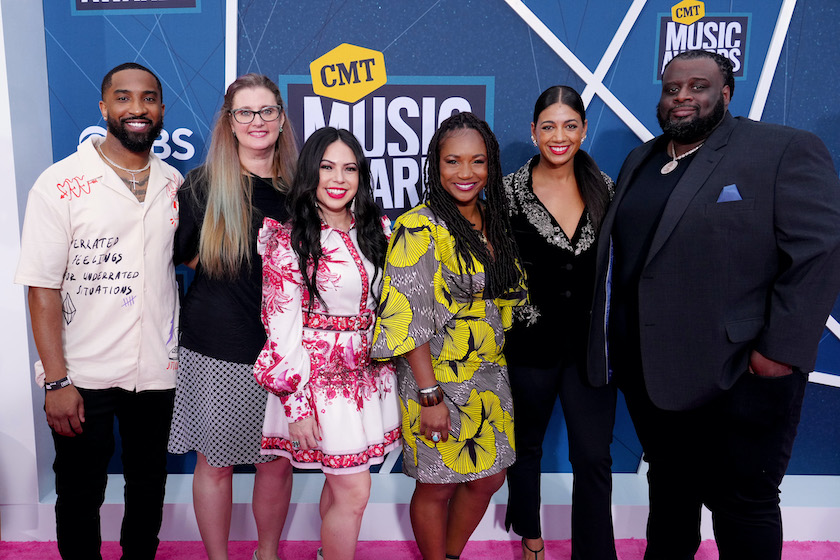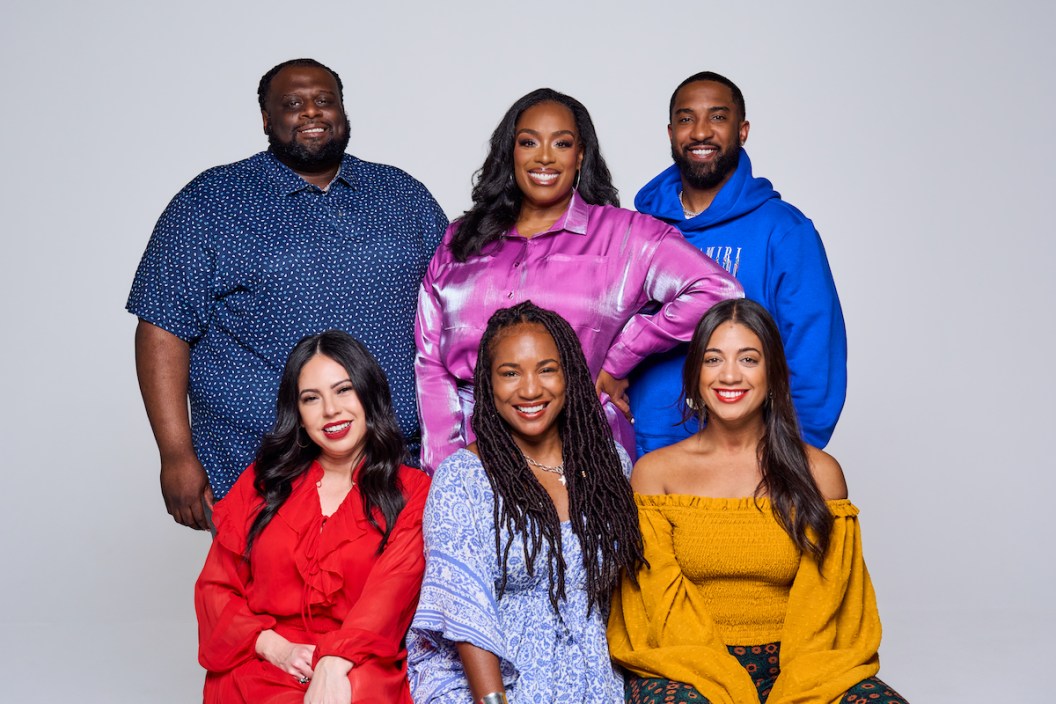[dropcap]O[/dropcap]ngoing conversations about diversity in country music — amplified by the Amazon Music documentary For Love & Country and crucial scholarly work about the current and historic lack of racial and gender identity representation in the genre — consider more than the increased number of people of color on award show stages and ballots. These and other sources question whether such positive strides can be sustained without more people of color in positions of power at record labels, publishing companies, management agencies, publicity firms and other cogs in the Music City machine.
Cameo Carlson, president of management and artist development company mtheory's Nashville division, has encountered the consequences of a systemic flaw through her working relationship with one of Nashville's leading forces of change, Mickey Guyton.
"[Guyton] is very proactive about helping other artists of color," Carlson told Wide Open Country. "She would call me and say, 'I found this great artist. They don't have any infrastructure. They don't have any resources or a team. Go help them.' And so, I would have conversations with artists and try to connect dots where I could to help them find management or to point them toward resources. Then there were two things that happened. One was there were only so many of these artists that I could really connect with and help. The other was that in one of those interviews that I had with an artist, the second question out of their mouth next to 'can you help me find a manager?' was 'is there a management team that has another person of color on it?' I had a moment where I was like, 'no.'"
Carlson seeks more affirming answers for artists through the Equal Access Development Program. The partnership between mtheory and CMT connects its initial class of three management professionals (Charlene Bryant (Riveter Management), Kadeem Phillips (Power Entertainment and Powerhouse Management) and Marques Vance (Sony Music Entertainment)) and three artists (Madeline Edwards, Miko Marks and Valerie Ponzio) for a year with a monthly stipend plus curriculum and networking opportunities that'll help them navigate Nashville. In addition, managers get access to mtheory's services, while the artists receive marketing support.
"All three of [the management professionals] have a great interest in doing management in country music but don't feel like they have the network to successfully take an artist from development to stardom," Carlson shared. "Then we have three artists that we brought on as part of our partnership with CMT. They're not with those managers. It's almost like separate tracks with the artists and the managers."

(L-R) Marques Vance, Cameo Carlson, Valerie Ponzio, Miko Marks, Madeline Edwards and Kadeem Phillips attend the 2022 CMT Music Awards at Nashville Municipal Auditorium on April 11, 2022 in Nashville, Tennessee. (Photo by Jeff Kravitz/Getty Images for CMT)
Carlson sees networking opportunities as something invaluable that'll benefit all six participants well beyond a 12-month stint in the program.
"The thing about Nashville and why we're so unique is that we are a community," she said. "But it's also what makes us so insular for somebody coming in from another genre. Our infrastructure is all country music, even though we all that live here know that there's so much more than that creatively in town. The people that built the infrastructure for country music, you have to know them to be able to navigate through."
"I tell Cameo all the time, 'Ya'll are the funnel'," added Phillips, a Tennessee native and longtime country music fan with experience working with hip-hop and R&B artists. "Ya'll keep all the stuff we don't need to deal with away from us and connect us straight to the people who want to help. That's important, too. You don't want to waste a lot of valuable time climbing up a tree for no results. You want to go to the people that have the same ideology as you, the same mindset as you so we can continue to build. There are people that want to make sure that everyone is part of the country space, and lucky enough, I have mtheory to connect me with those people."
To provide the necessary services for its six-person class, mtheory teamed with CMT, which has been proactive in recent years through its Equal Play initiative for music videos and a subsequent award, given so far to Jennifer Nettles and Linda Martell.
"We were going to have to put our money where our mouth is and really pay the participants," Carlson explained. "I didn't want it to be another internship program. There are great internship programs, but I feel in my bones like those are going to take a decade to infiltrate the industry. We had to put some money down and were trying to figure out the best way to do that. [Leslie Fram, CMT's senior vice president of music strategy and talent] and I had a conversation, and the CMT/Paramount team came in with a large sponsorship to help offset some of the cost of the program. That was really what birthed this."
Carlson, Fram and their employers share a vision for a meaningful and lasting shift in an ever-evolving business.
"Because I work in the pipeline and the infrastructure side, I don't see enough people that want to get into this that don't look like me. I am a white woman," Carlson said. "I want to make sure that there are lots of options and that people see themselves in our space. It's great that we're seeing more artists, but we're not seeing the pipeline open up."
"The pipeline is so important because there are a lot of management companies through COVID that struggled and really weren't even signing artists nor signing extra staff," Fram added. "Now coming out of the pandemic, where are the opportunities for people behind the scenes? It really runs the gamut, so I think having this pipeline is really important. Especially having the managers that are involved in Equal Access. And for artists as well, it's very easy to check a box, but to be able to say that you're on a real playlist on a DSP or you're in rotation at a radio station, you're in rotation in video channels, you're on the stage at concerts, that's really another part of where we need to see this program go."
CBS This Morning's Gayle King unveiled the Equal Access Development Program on April 11 during the CMT Music Awards. It has already benefited Marks, a country recording artist since 2005, in a big way.
"Just a couple of weeks ago, for my single 'Feel Like Going Home,' I was on a billboard in Times Square," Marks said. "That has a lot to do with mtheory, Equal Access and CMT as being one of the Next Women of Country for 2022. It's all coming together, and it takes a village. Mtheory, Equal Access and CMT, they're my village right now."
Likewise, Phillips cherishes his opportunity to have the Equal Access Development Program serve as a compass as he maneuvers unfamiliar territory en route to helping diversify and improve country music beyond the stage.
"I'm really grateful that mtheory thought about us because oftentimes, we get left out," Phillips said. "If you want to look at the bigger picture, it's not just the artists that need to be successful. Having people of color [behind the scenes] is what makes hip-hop great. It's diverse. You get different ideas from all kinds of people. It's time for country to do that, too."




